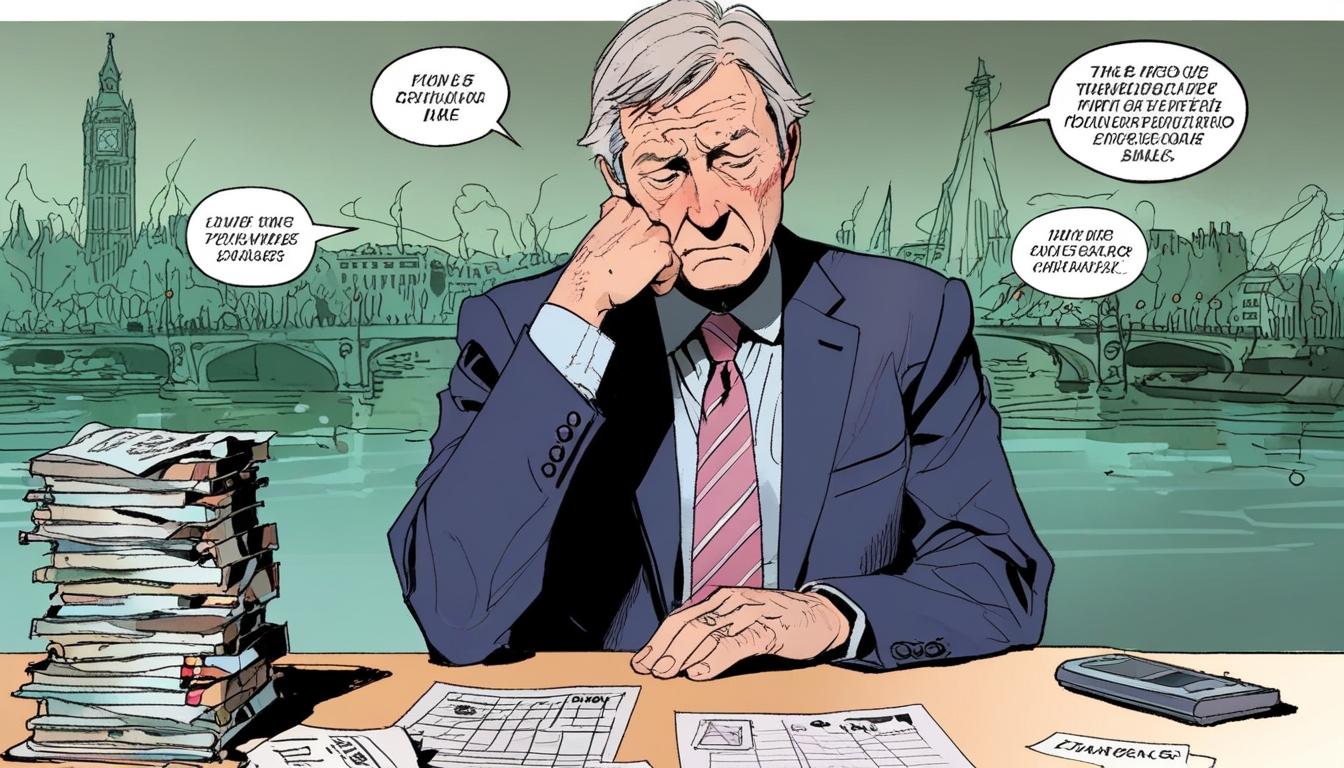Thames Water’s chairman, Sir Adrian Montague, recently addressed mounting concerns regarding the company’s performance and financial management, offering a contrite apology to customers while vigorously defending substantial bonuses awarded to top executives. In a session with MPs, he acknowledged the seriousness of customer dissatisfaction and the hardships inflicted by operational failings, stating, “We realise there is a vast amount to be done to bring performance up to scratch. We know we are letting customers down.”
Thames Water, which serves approximately 16 million households across London and the South East, has come under intense scrutiny for issues including pollution incidents, supply interruptions, and rising water bills. With a staggering £19 billion debt burden, the company recently secured a controversial emergency loan of up to £3 billion. Sir Adrian revealed the precariousness of the company’s finances, noting that at times, it had only five weeks' worth of liquidity available, a revelation that has raised alarm regarding its sustainability. He described the situation as “hair-raising,” asserting that securing additional debt, despite its “eye-watering” terms, was essential to safeguard the company’s future.
Despite the dire circumstances, executive bonuses remain a contentious issue. Sir Adrian contended that these payments are necessary to retain key talent within a highly competitive market. When pressed by Labour MP Helena Dollimore about the rationale behind rewarding executives during a time of crisis, he maintained that Thames Water is “not a failing company” but rather “a company in recovery.” This assertion comes amidst widespread public discontent over excessive executive pay combined with increasing bills for consumers.
The situation is further complicated by the company’s ongoing negotiations with investment firm KKR, which has been selected as a “preferred partner” for a potential buyout. The outcome of these discussions remains uncertain, with CEO Chris Weston acknowledging the possibility of Thames Water falling into public ownership if negotiations falter. He highlighted the “very fluid” nature of the current circumstances, mentioning the significant penalties the firm faces for not meeting regulatory performance standards, which could dampen investor interest.
In the backdrop of Sir Adrian and Weston's assurances, recent investigations have reported troubling practices within Thames Water’s financial operations. Internal documents reveal that the company diverted millions intended for environmental clean-up efforts, instead utilising those funds for bonuses and dividends. Critics have decried this misallocation as an affront to environmental responsibility and consumer trust, with potential implications for criminal prosecution if regulatory standards were breached.
Regulatory bodies have begun to intervene, notably Ofwat, which has barred Thames Water from utilising customer funds for executive bonuses deemed unjustified. Ofwat's new directives reflect growing pressure on the sector to demonstrate greater accountability, especially in light of soaring customer bills. Reports indicate that Thames Water’s financial woes might lead to bill increases as high as 59% over the next few years, exacerbating consumer frustration.
As the water company grapples with its precarious position, calls for transparency and reform within the industry intensify. Political leaders have voiced opposition to remuneration practices that appear disconnected from actual performance. The ongoing debate over executive bonuses, customer treatment, and environmental responsibilities underscores a critical turning point for Thames Water and the wider water industry.
Through these developments, the path forward remains fraught with challenges. Thames Water’s financial recovery and operational overhaul will depend on not only securing the necessary investments but also rebuilding customer confidence and adhering to regulatory demands. The stakes are high, and the ramifications of the current situation will likely resonate throughout the industry—illuminating the delicate balance between profitability and accountability.
Reference Map
- Paragraphs 1, 2, 3, 4, 5, 6, 7, 8, 9, 10
- Paragraphs 4, 5, 7
- Paragraph 5
- Paragraph 6
- Paragraphs 5, 6
- Paragraph 8
- Paragraphs 8, 9
Source: Noah Wire Services
